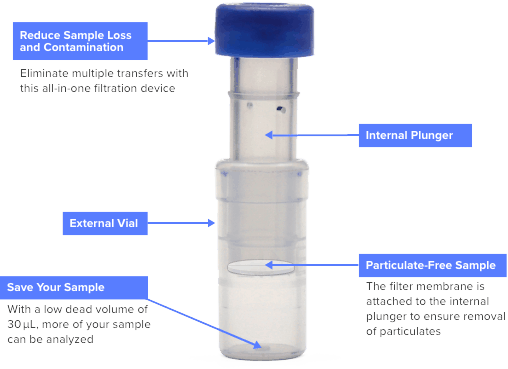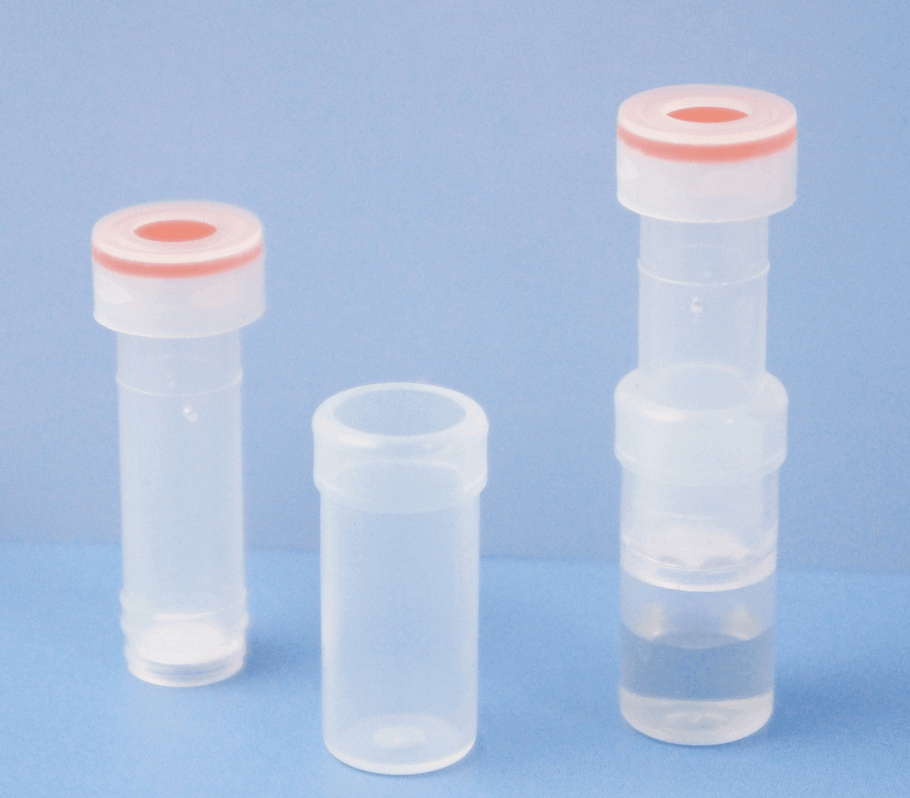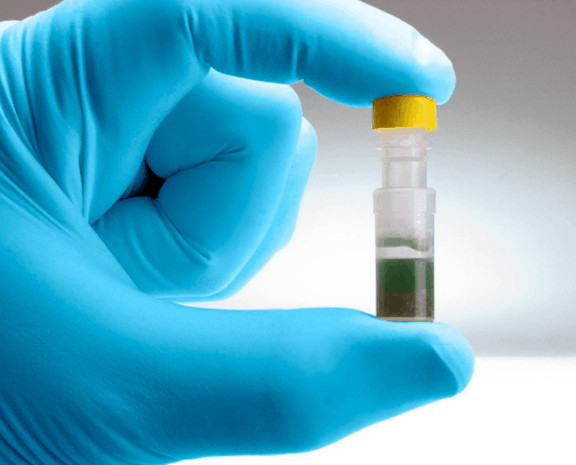


Thin Layer Chromatography Summary. Place a small portion of solvent ( 5 - 10 mL for this chamber) into a TLC chamber with lid, along with a cut piece of filter paper. Dissolve liquid or solid samples (1 drop per ∼ 1 mL solvent) using a low boiling solvent (e.g. acetone or dichloromethane).
Separa® Filter Vial. The device consists of an internal insert with a membrane chamber and precut septa cap and an external vial. A sample ready to use after filtration. Pre-slitted cap ensures easy and clean sample transfer. Replace syringe, syringe filter, glass vial, and cap, reducing waste.
Deep-freeze thermal-transfer labels for identification of vials, tubes, freezer boxes, plastic bags (at -196°C in liquid phase and vapor phase Liquid Nitrogen, and -80°C freezers) and other containers. Designed for long-term biopreservation in laboratory deep-freeze and harsh environments.
Vials, labeling - Big Chemical Encyclopedia. Label the vials 1 to 5 on the outside, above the level of the fluid in the vial or on the cap. Label each vial with your name for later identification. Perform steps 6 to 9 on the contents of each of tubes 2 to 5. You will require a clean, unused filter for each of the remaining four reaction tubes.
Using a syringe with an attached needleless access device or filter needle, aspirate a volume of air equivalent to the first medication dose (which will come from vial A). Inject the air into vial A, making sure that the needle or needleless access device does not touch the solution ( Figure 2A).
According to the Association for Professionals in Infection Control and Epidemiology (APIC) Safe Injection, Infusion, and Medication Vial Practices in Health Care, practitioners should disinfect vials by cleansing the access diaphragm “using friction and a sterile 70% isopropyl alcohol, ethyl alcohol, iodophor, or other approved antiseptic
Cytiva. Shop. Whatman Lab Filtration Products – Analytical sample preparation. Syringe filters and other devices. All in one filters and filter vials.
Pharmaceutical Labels and Seals. enseal™ – Self-adhesive tamper-evident seal; Syringe Labels (clear on clear) Adhesive Hang Tag Labels; Vial Labels (for small diameter labeling) Intravenous Medicine & Blood Bag Labels; Durable Custom Industrial Labels. Specially designed automotive industry labels; Labels for the Heavy Industry
Use a sterile 15 micron in-line filter when administering the product (not supplied). (2.2) milligrams is printed on the vial label and carton. 137 . 4 CONTRAINDICATIONS 138 .
The Morphine sulfate label states 1 mL=10 mg. The Vistaril label states 1 mL=50 mg. The nurse obtains the MAR, clean gloves, alcohol swabs, a 1 mL syringe, and a 1.5 inch 22 gauge needle. The nurse wipes the top of both vials with an alcohol swab, inserts the needle, injects the air into each vial, and withdraws the medication from the first vial.
B33 Series Polyester Chemical Resistant Laboratory Labels with Vial Top Options Available For Label/Tape Size Secondary Label Diameter from $102.99 USD Chemical Resistant Cryogenic Polypropylene Labels, Sterilization Indicating, for B33 Printers Options Available For Label/Tape Size from $125.99 USD 3" Core Polyester Autoclave and Cryogenic Labels
Thomson nano|Filter Vials offer a low dead volume, allowing filtration with as little as 10 µl of sample with enough remaining filtrate to make a 2 µl injection.Available in a variety of filter media, syringeless filters allow you to process sample loads in a fraction of the time, providing a quick, economical, and environmentally conservative way to filter samples prior to HPLC analysis.
efficiency particle air (HEPA) filter that is >99.99% efficient in removing particles as small as 0.3 microns in size (the most penetrating particle size [MPPS], which refers to the largest-sized particle that may escape the filter, although particles of all sizes may be captured). The unidirectional
Choose from polytetrafluoroethylene (PTFE), nylon, polyethersulfone (PES), and regenerated cellulose (RC) membranes. PES filter vials are a great choice for protein analysis applications due to their low protein binding. RC filters are suitable for general filtration for aqueous based samples.
• For single use only. Discard used vial , including any unused contents. • After dilution, the solution is stable for 48 hours under refrigeration at 2°C to 8°C (36°F to 46°F) or at room temperature from 20°C to 25°C (68°F to 77°F). 2.2 Dosage for Administrati on in Intravenous Fluids to Correct Hypophosphatemia Reference ID: 4494533